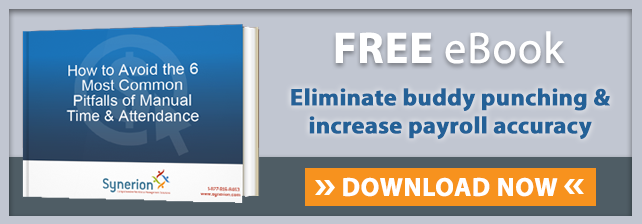 Identifying top talent is far from an easy task. DHI Group statistics suggest that according to 45 percent of employers, the amount of time needed to fill open positions has increased since 2014. Turnover is also on the rise with 43 percent of employers acknowledging that it’s increasing. With higher competition between companies, identifying and attracting top talent has become more crucial than ever.
Identifying top talent is far from an easy task. DHI Group statistics suggest that according to 45 percent of employers, the amount of time needed to fill open positions has increased since 2014. Turnover is also on the rise with 43 percent of employers acknowledging that it’s increasing. With higher competition between companies, identifying and attracting top talent has become more crucial than ever.
Asking the right interview questions is one of the most important prerequisites for figuring out which candidates have what it takes to be successful in the company. A few additional strategies can be employed, as well.
Look for a Good Cultural Fit
Cultural fit is becoming an increasingly prominent concept in the world of recruitment. According to HR managers, it plays an important role in figuring out which candidates are a good match for the respective position. The term refers to the ability of a potential employee to fit well inside the respective corporate structure with its values and core beliefs.
The concept here is simple – people who are similar to each other in terms of character, communication styles, integrity, ethics and thinking style will usually work very well together. The definition of cultural fit can be very narrow or very broad. It all depends on the needs of the respective organization.
Testing for cultural fit can happen easily during the interview itself. The right questions will help you figure out which values are most important for the candidate, how they work with others and what processes they follow. While cultural fit shouldn’t be the top concern, it can help you make the decision between candidates who have otherwise similar characteristics.
Turn the Traditional Interview on Its Head
Asking standard interview questions will usually lead to clichés that job seekers have learned by educating themselves about acing the application process. In order to learn more and get authentic information, you may want to ask questions that are unexpected.
Focus on the passions and interests of candidates rather than their resumes. If you just walk together over the CV, you’re not going to acquire a lot of useful information that you don’t already have access to. It’s also a good idea to switch things up with the venue – a coffee house or a video interview will often take candidates out of their comfort zone and give them a challenge.
Let the Candidate Ask the Questions
It’s always a good idea to give candidates a chance to ask questions. The questions that candidates ask interviewers will often provide a lot more information about their personality and skills than the other portion of the interview.
These questions give you a better idea about whether people have researched the company, whether they’re asking about topics that can be addressed through Google and if they’re comfortable enough taking the lead.
Don’t Underestimate the Importance of References
References are usually included in resumes simply because they have to be there. Few potential employers make use of this crucial information. Contacting references can be highly beneficial in terms of checking the authenticity of information included in the resume, identifying top skills, soft skills and specialized qualifications. Focusing on former patterns of behavior can also be quite revealing.
The interview shouldn’t be a standard, clichéd process that both the recruiter and the candidate are familiar with. Take people out of their comfort zone and attempt to surprise them. This is how you can get access to lots of important information that will be the key to identifying top talent.
